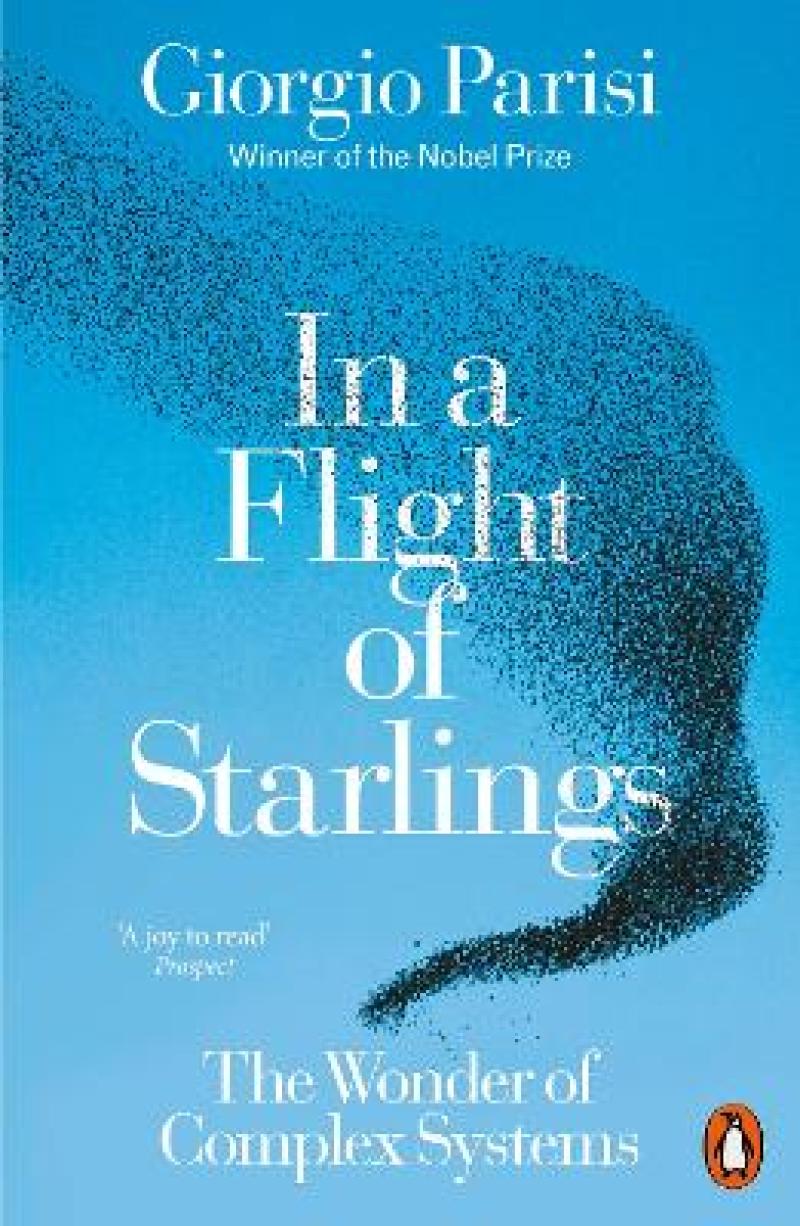The man who looked at birds and grasped the secrets of the universe ... Read this, and you will get at least a frisson of what a top-flight career in physics might feel like
Daily Telegraph
The Italian physicist puts the fiendishly tricky theory of complex systems in terms of birds and bus rides ... aims to make his branch of science accessible to all
Observer
Giorgio Parisi is remarkably flexible and ingenious... <i>In a Flight of Starlings </i>is a compelling introduction to how modern researchers think about complex systems, enlivened by autobiographical anecdote and reflection on the processes of science
- Sean Carroll, The Times Literary Supplement
Parisi tells of his adventures in thinking in this alarmingly brilliant, witty and brief book
- Robert Fox, Evening Standard
<i>In a Flight of Starlings</i> offers a glimpse into scientific discovery ... a forceful argument for the value of scientific literacy at a time when it's increasingly being challenged by misinformation ... Parisi's book is a step toward making physics feel more accessible
- Andrew DeMillo, Independent
An interesting collection of essays reflecting on Parisi's long career in science . . . The scientific explanations are admirably lucid
The Wall Street Journal
An erudite contemplation on both science and the process of doing science. And a joy to read
- Marcus Chown, Prospect Magazine
In this delightful and deeply thoughtful book, Giorgio Parisi weaves a tapestry of experiences and ideas that connects disciplines and prepares us to appreciate the beauty, importance, and cultural value of science
- Frances Arnold, winner of the Nobel Prize,
An extraordinary scientist
- Carlo Rovelli, author of Seven Brief Lessons on Physics,
Giorgio Parisi is renowned for his scientific creativity, originality, and power. In this exhilarating little book, he shows his human side, too. By its end, readers will feel they've made a charming, witty new friend.
- Frank Wilczek, winner of the Nobel Prize and author of Fundamentals,
From the 2021 Nobel Prize winner in Physics, a remarkable journey into the practice of groundbreaking science
'Giorgio Parisi is renowned for his scientific creativity, originality, and power. In this exhilarating little book, he shows his human side, too. By its end, readers will feel they've made a charming, witty new friend' Frank Wilczek
The world is shaped by complexity. In this enlightening book, Nobel Prize winner Giorgio Parisi guides us through his unorthodox yet exhilarating work to show us how. It all starts with investigating the principles of physics by observing the sophisticated flight patterns of starlings. Studying the movements of these birds, he has realized, proves an illuminating way into understanding complex systems of all kinds - collections of everything from atoms to planets to other animals like ourselves.
Along the way, Parisi reflects on the lessons he's taken from a life in pursuit of scientific truth: the importance of serendipity to the discovery of new ideas, the surprising kinship between physics and other fields of study and the value of science to a thriving society. In so doing, he removes the practice of science from the confines of the laboratory and into the real world. Complexity is all around us - from climate to finance to biology, it offers a unique way of finding order in chaos.
Part elegant scientific treatise, part thrilling intellectual journey, In a Flight of Starlings is an invitation to find wonder in the world around us.
